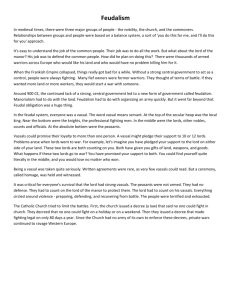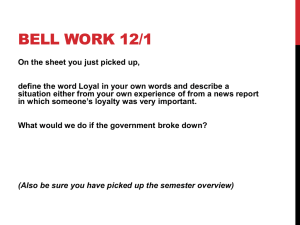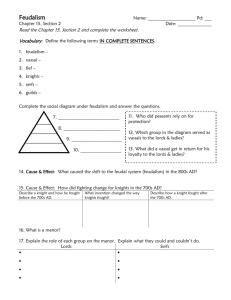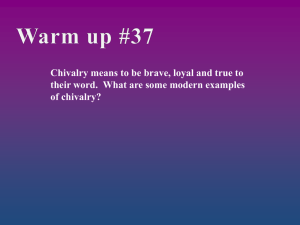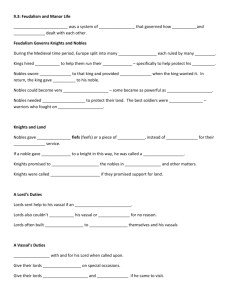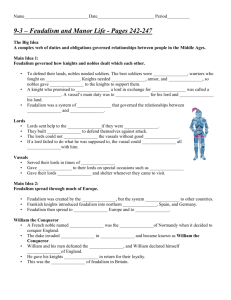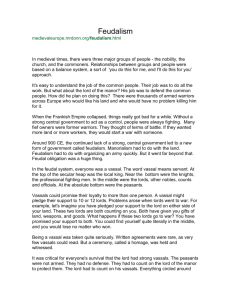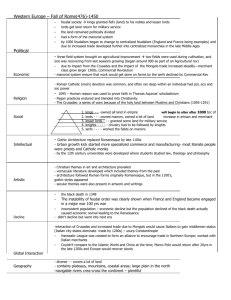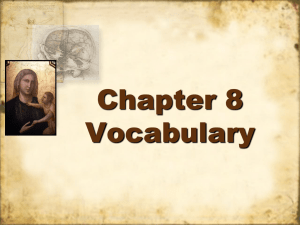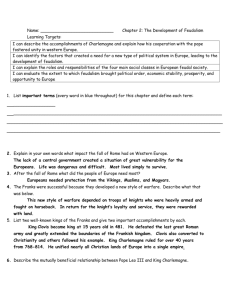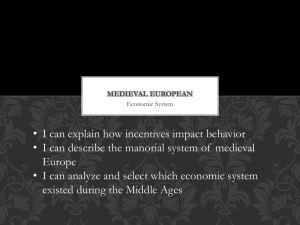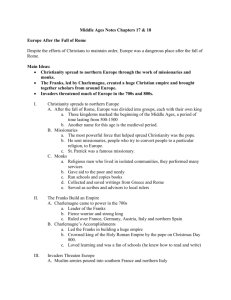Feudalism and Manor Life Feudalism Governs Knights and Nobles
advertisement
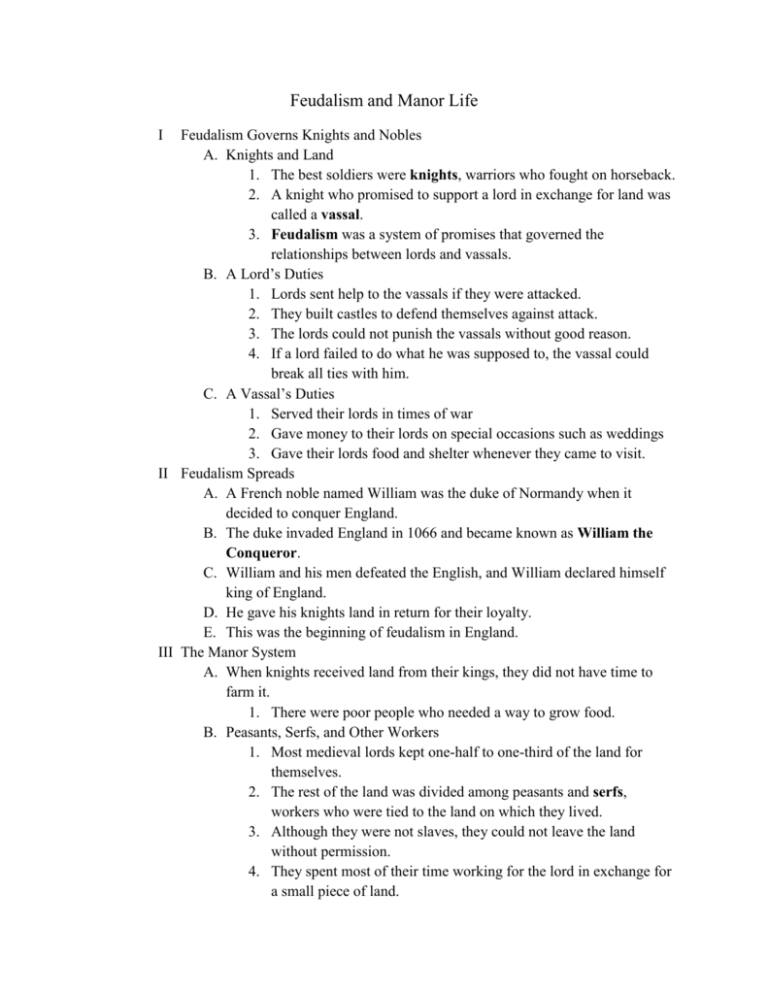
Feudalism and Manor Life I Feudalism Governs Knights and Nobles A. Knights and Land 1. The best soldiers were knights, warriors who fought on horseback. 2. A knight who promised to support a lord in exchange for land was called a vassal. 3. Feudalism was a system of promises that governed the relationships between lords and vassals. B. A Lord’s Duties 1. Lords sent help to the vassals if they were attacked. 2. They built castles to defend themselves against attack. 3. The lords could not punish the vassals without good reason. 4. If a lord failed to do what he was supposed to, the vassal could break all ties with him. C. A Vassal’s Duties 1. Served their lords in times of war 2. Gave money to their lords on special occasions such as weddings 3. Gave their lords food and shelter whenever they came to visit. II Feudalism Spreads A. A French noble named William was the duke of Normandy when it decided to conquer England. B. The duke invaded England in 1066 and became known as William the Conqueror. C. William and his men defeated the English, and William declared himself king of England. D. He gave his knights land in return for their loyalty. E. This was the beginning of feudalism in England. III The Manor System A. When knights received land from their kings, they did not have time to farm it. 1. There were poor people who needed a way to grow food. B. Peasants, Serfs, and Other Workers 1. Most medieval lords kept one-half to one-third of the land for themselves. 2. The rest of the land was divided among peasants and serfs, workers who were tied to the land on which they lived. 3. Although they were not slaves, they could not leave the land without permission. 4. They spent most of their time working for the lord in exchange for a small piece of land. 5. Farm labor was hard, and everyone worked, even children. 6. The lords wanted people to produce everything they needed to live. C. Manor Lords 1. The lords controlled everything that happened on their land. 2. They resolved disputes and collected taxes from the people on their land. 3. The lords lived more comfortably than the serfs and peasants, but they still had to worry about disease and warfare. D. Women in the Middle Ages 1. Women governed the manor while their husbands were away. IV Towns and Trade Grow A. More people lived in Europe because more food was available. B. New technology, such as a heavier plow and the horse collar, meant that farmers could be more productive. C. Trade increased as the population grew and trade routes began to develop across Europe. D. People began to leave the farms and move to the towns in order to make more money.
